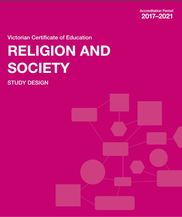Unit 4: Religion, Challenge and Change

This unit focuses on the interaction over time of religious traditions and the societies of which they are a part. For a large part of human history religion has been a truth narrative, offering a means for finding answers to the big questions of life. Religious traditions are in a dynamic process of engagement and negotiation with members individually and collectively, as well as with other key institutions in wider society associated with power, authority and credibility. Religious traditions are living institutions that participate in and contribute to wider societies – both positively and negatively. They stimulate and support society, acting as levers for change themselves and embracing or resisting forces for change within society.
Religious traditions are in a constant state of development as members apply their talents and faith to extend the intellectual and aesthetic nature of the beliefs, of their expression and of the application to their lives. In the interaction of religious traditions and society there are also opportunities for development from significant challenges including the needs and insights of their membership, and of people and groups within wider society. These challenges and the religious tradition are influenced by broader contexts such as changing economic, political and social conditions.
A challenge is a situation that stimulates a response from society and/or religious traditions. Religious traditions take stances for or against challenges, or they take a stance of indifference. Consequently, actions are implemented which involve different aspects of the religious tradition. These actions may resist or embrace change and affect wider society and/or the religious tradition itself. A key aim beyond resolution of the challenge itself is for the religious tradition to retain integrity, authenticity and, ultimately, identity. However, the interaction between religious traditions and society may not always achieve these aims and there may be a series of interactions as a challenge is negotiated. In this unit students explore challenge for religious traditions generally over time and then undertake a study of challenge and change for one or more than one religious tradition or denomination. Religious tradition/s or denomination/s are to be selected from one or more than one of the following: Buddhism, Christianity, Hinduism, Islam, Judaism.
Students consider the aspects of religion on page 9 of the study design when investigating religion in general and selected religious tradition/s or denomination/s
• Beliefs
• Sacred stories
• Spaces, places, times and artifacts
• Texts
• Rituals
• Symbols
• Social structures
• Ethics
• Spiritual experiences